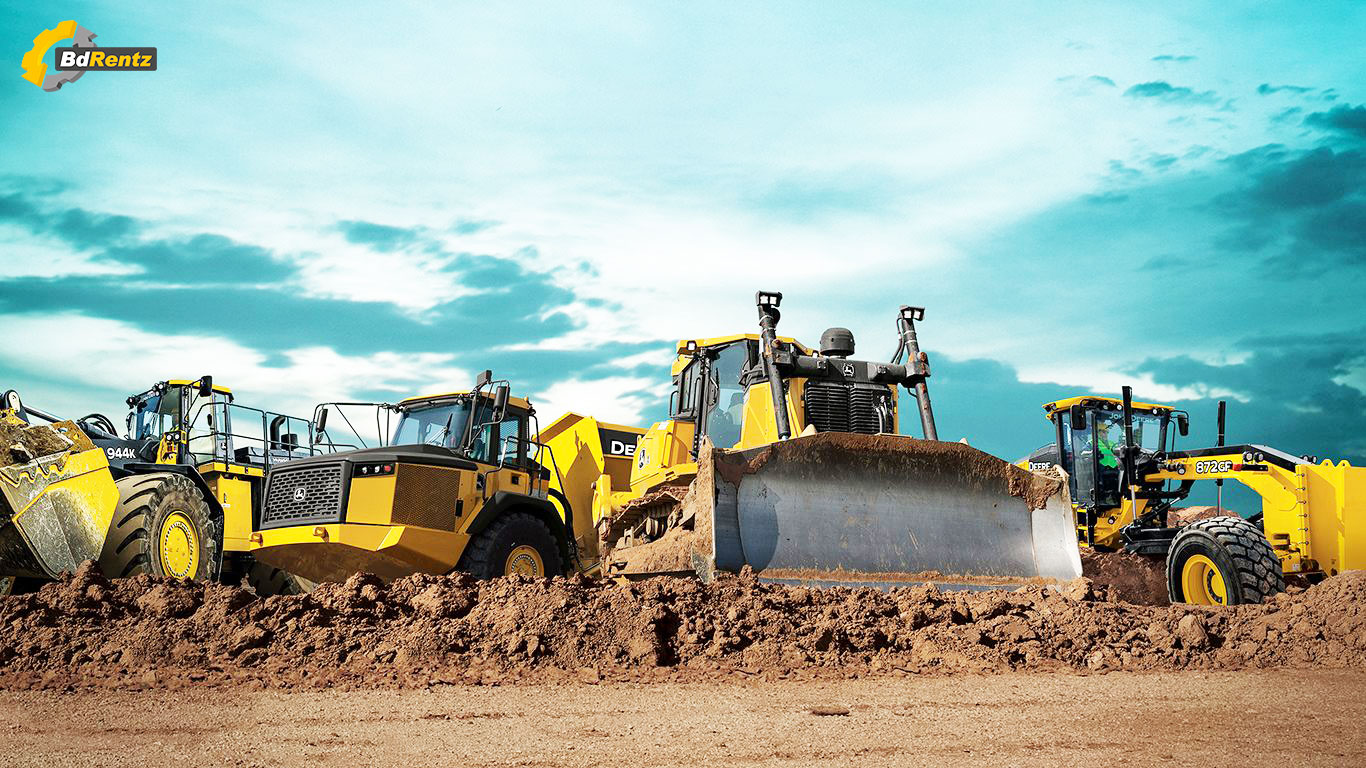Maximize Your Spending Plan by Understanding the Costs Related To Building And Construction Devices Rentals
Recognizing the full scope of prices connected with construction tools leasings is crucial for optimizing your budget plan. While the initial rental cost may appear simple, many extra expenses-- such as transport, fuel additional charges, and maintenance-- can swiftly collect, impacting your economic planning. Moreover, knowing numerous fees and the intricacies of rental contracts can aid prevent unforeseen economic concerns. What approaches can be utilized to successfully manage these costs and make sure a more reliable rental experience?
Introduction of Rental Costs
When taking into consideration building equipment services, comprehending the linked expenses is extremely important for efficient budgeting and job planning. Rental expenses can differ substantially based upon a number of aspects, including tools type, duration of service, and location. The initial rental fee typically reflects the devices's market need and its connected operational abilities, affecting the overall cost.
In enhancement to the base rental rate, ancillary expenses might emerge, such as transportation charges, gas surcharges, and maintenance costs. It is necessary to represent these added costs to accurately analyze the total expense of leasing tools. In addition, the rental period can impact rates; longer services might receive reduced prices, while temporary services could incur higher everyday costs.

Breakdown of Rental Rates
A comprehensive understanding of rental prices is crucial for service providers and task managers aiming to maximize their spending plans. Rental prices for construction devices typically are composed of a number of parts, consisting of base prices, time-based fees, and usage costs.
Base rates are the core charges connected with the service of the tools, commonly figured out by the type and dimension of the machinery. These rates can differ substantially, influenced by variables such as devices demand, accessibility, and regional market trends. Time-based fees, which may be daily, weekly, or monthly, offer to fit different task timelines and rental durations.
Additionally, rental prices may consist of usage costs, which apply when devices is made use of beyond a defined threshold, guaranteeing that the rental company can account for damage. Seasonal demand variations can also influence rental rates, with peak building and construction seasons commonly commanding higher prices.
Additionally, understanding the rental business's plans regarding upkeep and insurance policy can supply more insight right into the total cost structure. By examining these components, service providers can make informed decisions, making certain the selection of rental devices aligns with both project requirements and budget plan constraints.
Additional Fees to Think About
Comprehending the ins and outs of added costs is vital for contractors to manage their overall rental expenses effectively. Past the standard rental rates, various additional charges can considerably impact the total cost of equipment rental. These costs usually consist of distribution and pickup costs, which can differ based upon distance and logistics associated with transferring the equipment to and from the job site.
Moreover, some rental business may impose gas additional charges if the tools is returned with much less fuel than when rented. It is also necessary to know potential cleansing charges, particularly for specialized tools that needs detailed upkeep after use.

Extensively reviewing the rental arrangement and clearing up these extra fees in advance can help contractors guarantee and stay clear of unforeseen prices that spending plans stay undamaged throughout the job lifecycle.
Upkeep and Repair Work Expenditures
Routine repair and maintenance expenses are usually neglected variables that can substantially affect the overall price of building tools rentals. When leasing tools, it my sources is vital to consider not only the rental costs but likewise the possible prices related to keeping the browse around this site machinery in ideal operating problem.
Many rental companies consist of fundamental upkeep as component of the rental agreement; nevertheless, a lot more unanticipated failures or extensive repair work can cause additional costs. It's necessary to review the rental contract carefully to comprehend what maintenance solutions are covered and what duties drop on the occupant.
Furthermore, equipment that is not well-maintained can lead to inefficiencies on duty site, potentially triggering delays and enhancing task costs. To minimize these threats, it is recommended to carry out routine evaluations and preserve open communication with the rental service provider concerning any type of concerns that emerge throughout use.
Insurance Coverage and Liability Costs
Insurance and obligation costs are crucial components that can dramatically influence the general expense of building equipment services (heavy equipment rental). These prices guarantee that both the rental company and the customer are shielded from prospective financial losses emerging from mishaps, damage, or burglary during the rental period

Additionally, customers ought to recognize published here any deductibles or exclusions in the insurance coverage policy, as these can affect potential out-of-pocket expenditures. Recognizing the terms of any insurance policy coverage is essential to avoid unforeseen prices. Ultimately, budgeting for insurance coverage and responsibility expenses can assist make certain a smoother rental experience and safeguard against economic threats related to construction jobs.
Final Thought
In final thought, an extensive understanding of the costs connected with building equipment services is crucial for reliable budget plan management. Eventually, notified decision-making concerning tools services contributes to the overall success of building and construction ventures.
Rental expenses can vary significantly based on numerous aspects, including tools type, period of service, and location (dozer rental). The rental period can affect pricing; longer services may qualify for discounted prices, while short-term leasings might incur greater day-to-day fees
By conducting detailed research study and involving with respectable rental companies, specialists can efficiently navigate the intricacies of rental rates, inevitably optimizing their economic resources.
Past the conventional rental prices, various extra charges can significantly influence the total expense of tools rental. Rental business usually offer responsibility insurance that covers injuries to 3rd events or damage to residential property, while equipment damage insurance coverage can cover the cost of fixings or replacement if the rented tools is harmed.